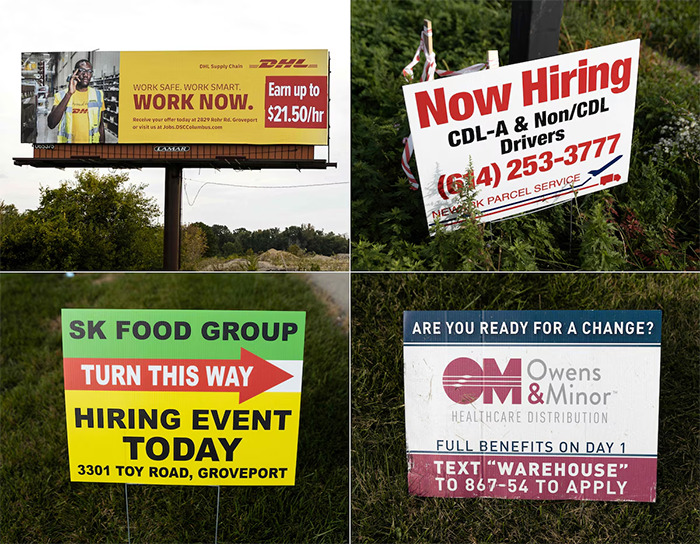
One reason so many are quitting: We want control over our lives again
The pandemic, and the challenges of balancing life and work during it, have stripped us of agency. Resigning is one way of regaining a sense…
Thought Leader: Amy Cuddy

Thank you for filling out last week’s pulse check. Knowing what’s keeping you up at night helps me show up for you in the ways that matter most. The good news? Your concerns align closely with what I’m already exploring—which means we have plenty to dig into together through 2026.
Let’s take a quick look at the results:
Question 1: The Political Climate and Your Workplace
Two themes rose to the top here, and they’re deeply connected: the constant pull between reacting to news cycles versus doing meaningful work, and the reality that corporate values are under political fire.
Here’s what I’m seeing: when you’re constantly defending against external attacks, reaction becomes your default mode—and that makes it nearly impossible to move your business forward.
I’ve been saying for a while that tech companies can’t run away from politics, and I recently came across a more apt phrase: you can ignore politics, but politics won’t ignore you.
There’s a lesson here from campaigns: you need two kinds of teams — one focused on rapid response, and another staying on message and advancing your priorities. If all you do is react, you’re already losing.
Question 2: AI and What It Actually Means for Your Work
This question lit up the responses. The number one concern? AI risks. Close behind: the struggle to separate real capability from hype.
Right now, AI’s promise outpaces its reality—which puts you in an impossible position. You need to know what to implement without falling behind, but the ground keeps shifting.
Let’s talk about those risks for a moment. MIT’s AI risk database catalogs over 1,600 of them. That’s overwhelming—and it’s exactly the problem. In social media’s early days, we didn’t examine downsides enough. Now with AI, we’re drowning in them.
I have a complicated relationship with AI myself — equal parts curiosity, creativity, and caution. When The Washington Post’s Shira Ovide asked me recently why people are so pessimistic about AI, we ended up talking less about the technology and more about how it makes us feel — that mix of awe, unease, and uncertainty that so many of us can relate to.
This is where Panic Responsibly comes in. Yes, stay vigilant about risks. Yes, think them through. But don’t let them paralyze you. We’ll never mitigate every risk—what we need instead are honest conversations about tradeoffs. Where are we willing to compromise? How do we use AI with intention? These questions matter more than trying to eliminate every possible danger.
Question 3: Planning When Nothing Feels Certain
This question got the least engagement, which surprised me—especially since planning for 2026 dominates my client conversations right now.
The top concerns: you can’t predict consequences, and your usual frameworks don’t fit anymore. You’re not lacking information—you’re drowning in it. Maybe that’s the real problem.
I learned something at Facebook and on campaigns: every plan changes the moment you submit it. You can plan for some events—elections, product launches—but you can’t predict everything. ChatGPT in November 2022. Meerkat’s livestreaming disruption in spring 2015 that forced Facebook and Twitter to pivot overnight.
The best strategy I found? Keep one eye on the horizon and one on what’s right in front of you. Build in enough flexibility to pivot when needed. That’s not perfect planning—it’s resilient planning.
Over the coming months, we’ll dig deeper into each of these. But I want to know: do these resonate with you? What else is keeping you up at night? Let me know in the comments—this conversation belongs to all of us.
Katie Harbath is a leading voice on how technology shapes democracy. Drawing from more than a decade at Facebook, where she built and led the global elections team, Katie offers rare, firsthand insight into the challenges and opportunities at the intersection of tech, policy, and civic engagement. Her engaging presentations help audiences understand how to navigate the evolving digital landscape while leveraging innovation to strengthen communication, trust, and participation. To bring Katie to your next speaking event, contact WWSG.
One reason so many are quitting: We want control over our lives again
The pandemic, and the challenges of balancing life and work during it, have stripped us of agency. Resigning is one way of regaining a sense…
Thought Leader: Amy Cuddy
Scott Gottlieb: How well can AI chatbots mimic doctors in a treatment setting?
This is an Op-ed by WWSG exclusive thought leader, Dr. Scott Gottlieb. Many consumers and medical providers are turning to chatbots, powered by large language…
Thought Leader: Scott Gottlieb
Sara Fischer: The AI-generated disinformation dystopia that wasn’t
This piece is by WWSG exclusive thought leader, Sara Fischer. Amid the craziest news cycle in recent memory, AI-generated deepfakes have yet to become the huge truth…
Thought Leader: Sara Fischer

